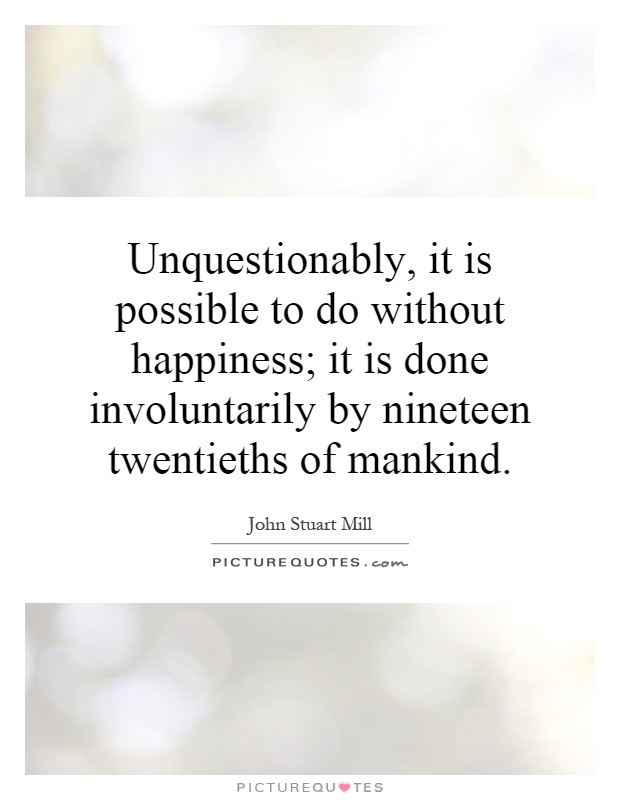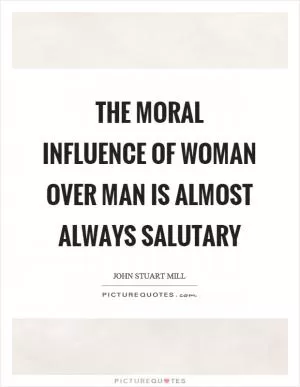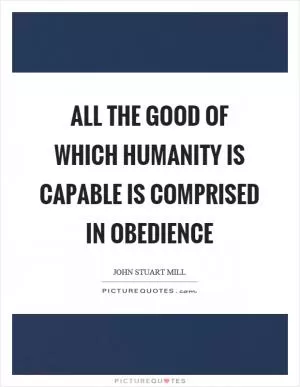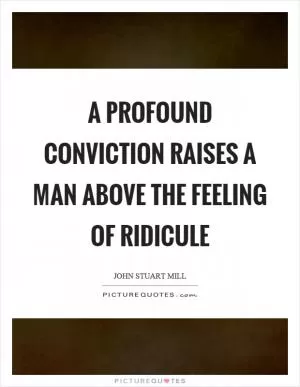Unquestionably, it is possible to do without happiness; it is done involuntarily by nineteen twentieths of mankind

Unquestionably, it is possible to do without happiness; it is done involuntarily by nineteen twentieths of mankind
John Stuart Mill, a prominent philosopher and political economist of the 19th century, believed in the pursuit of happiness as a fundamental human right. In his seminal work, "Utilitarianism," Mill argues that the ultimate goal of human existence is to maximize happiness and minimize suffering. He posits that happiness is the only intrinsic good and that all other goods are instrumental to achieving this end.In the context of the quote, "Unquestionably, it is possible to do without happiness; it is done involuntarily by nineteen twentieths of mankind," Mill would likely argue that the majority of people are not actively seeking happiness in their lives. Instead, they are preoccupied with meeting their basic needs, such as food, shelter, and security. In a world where poverty, inequality, and injustice are rampant, many individuals are simply struggling to survive rather than striving for happiness.
Mill would also point out that societal norms and expectations often dictate what constitutes a "good" life, leading people to prioritize material wealth, social status, and external validation over their own well-being. This conformity to societal standards can result in individuals sacrificing their own happiness in pursuit of these external markers of success.
Furthermore, Mill would argue that the lack of education and self-awareness among the masses contributes to their inability to recognize and pursue happiness. Without a clear understanding of what brings them joy and fulfillment, many people may settle for a life of mediocrity or resignation, believing that happiness is unattainable or not worth pursuing.












 Friendship Quotes
Friendship Quotes Love Quotes
Love Quotes Life Quotes
Life Quotes Funny Quotes
Funny Quotes Motivational Quotes
Motivational Quotes Inspirational Quotes
Inspirational Quotes